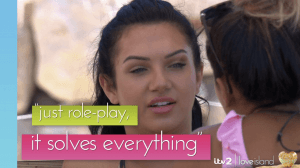Are Graduate Schemes Still Open?
By UCL Careers, on 11 January 2019
Which can I apply for? Are graduate schemes right for me?
If you haven’t applied to a graduate scheme already, you might be asking yourself some of these questions. There’s no need to worry. If you want to find a programme, there are still plenty currently taking applications. You might even decide that graduate schemes aren’t worth it. After all, one in six graduates leave their first employer within the first two years.
Which graduate schemes are still open?
Many of these programmes are still taking applicants. Others take on graduates on a rolling basis. So who’s recruiting students? Prospects have put together a handy online tool where you can search open graduate schemes. Use their filter options to reveal graduate programmes which you can sort by industry and location.
So which employers are still looking for current students and recent graduates? Here’s a little taste of the ones that are still open, from a range of sectors.
- Charity: British Heart Foundation
- Publishing/business: Cambridge University Press
- NGO/communications: Nuclear Graduates
- Software/technology: Balfour Beatty
Find out who’s still taking applications on the Prospects search tool.
Clearly employers are still searching for students to recruit, so do some research across the web and try and meet as many graduate recruiters as you can at our events.
Are graduate schemes right for me?
It is easy to feel pressured into applying for a graduate scheme – but these schemes are not your only choice. Most employers (including those who run graduate schemes), hire graduates on a continuous basis.
You only need to check the current vacancies on myUCLCareers to see this for yourself. You can search other major jobs boards, such as LinkedIn or Indeed, including the term “Graduate” and you will see plenty of graduate roles that aren’t part of a particular scheme.
This is particularly true for organisations who are not large enough to warrant a graduate scheme. This is why international organisations which hundreds of staff are much more likely to have schemes on offer. Working for a company like this might not suit your goals, so don’t be afraid to look elsewhere for graduate jobs. Read more about the difference between a graduate job and a graduate scheme on Gradtouch.
Further study is another popular choice, with 30% of UCL graduates in 2016 securing further study courses after six months.

How can I improve my applications? (for all graduate jobs)
All graduate jobs, whether part of a graduate scheme or not, want you to demonstrate your motivation, desirable qualities, skills and experience.
One of the best ways to do this is through volunteering and work experience. By finding an internship or other work experience you will show your motivation to employers, gain useful real-world experience, and learn more about that particular role or sector.
You might realise that you don’t enjoy a particular sector as much as you expect. This means you can look for something different when you graduate. If you love the job, you’ll be able to demonstrate your awareness of the sector to future employers. It’s very common for people who do internships while they study to secure a job with the same employer when they graduate.
Have work or volunteering experience? Let graduate recruiters know what you learned using examples. Be sure to tell them how you can apply those lessons when working for them. It’s what you’re aiming to do after all!
In your final year or recently graduated?
It might be time to start looking at what’s available and applying.
Our careers consultants can help you review your CVs and applications in one-to-one advice sessions and mock interviews. These will give you the confidence you need to evidence your best qualities when applying.
Graduate schemes often use recruitment tools such as assessment centres and psychometric testing to filter applications. Although these can seem intimidating, the more you know about them, the less scary they become.
UCL Careers run a range of workshops, talks and employer-led events through the year. These include mock assessment centres, employer networking and application sessions. Any of these could help with your graduate job applications, so see the full events calendar and book your place.
Remember, UCL Careers is here to support you, no matter what stage your at in your career planning; whether you’re applying to graduate schemes or any other kind of work or further study. Find out more about what UCL Careers can offer you.
 Close
Close






















